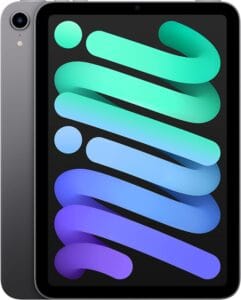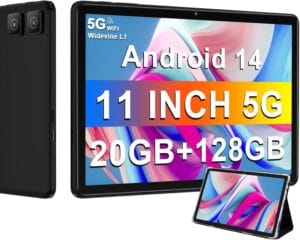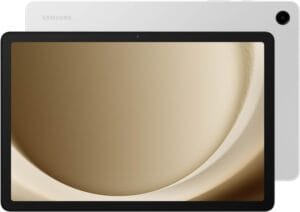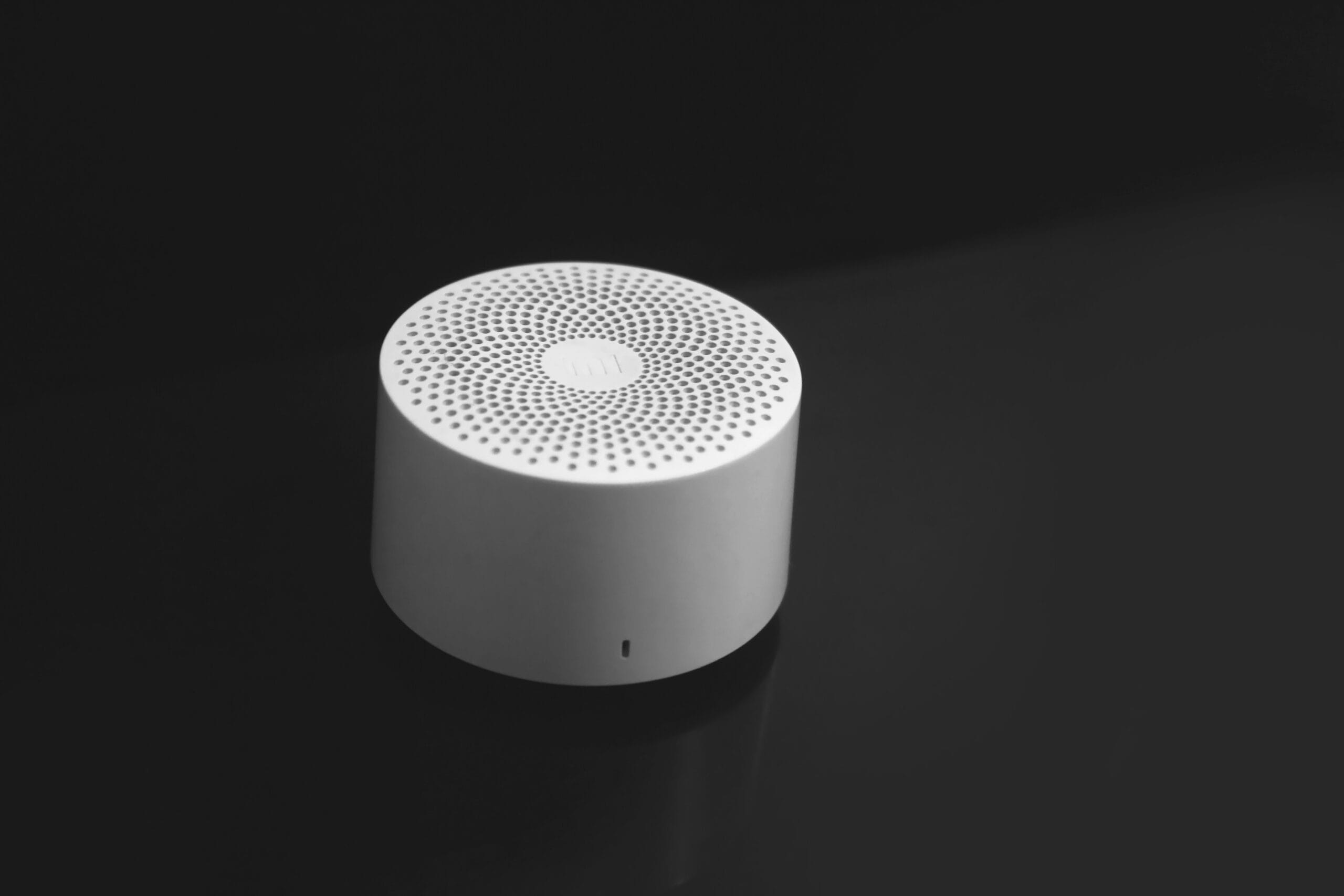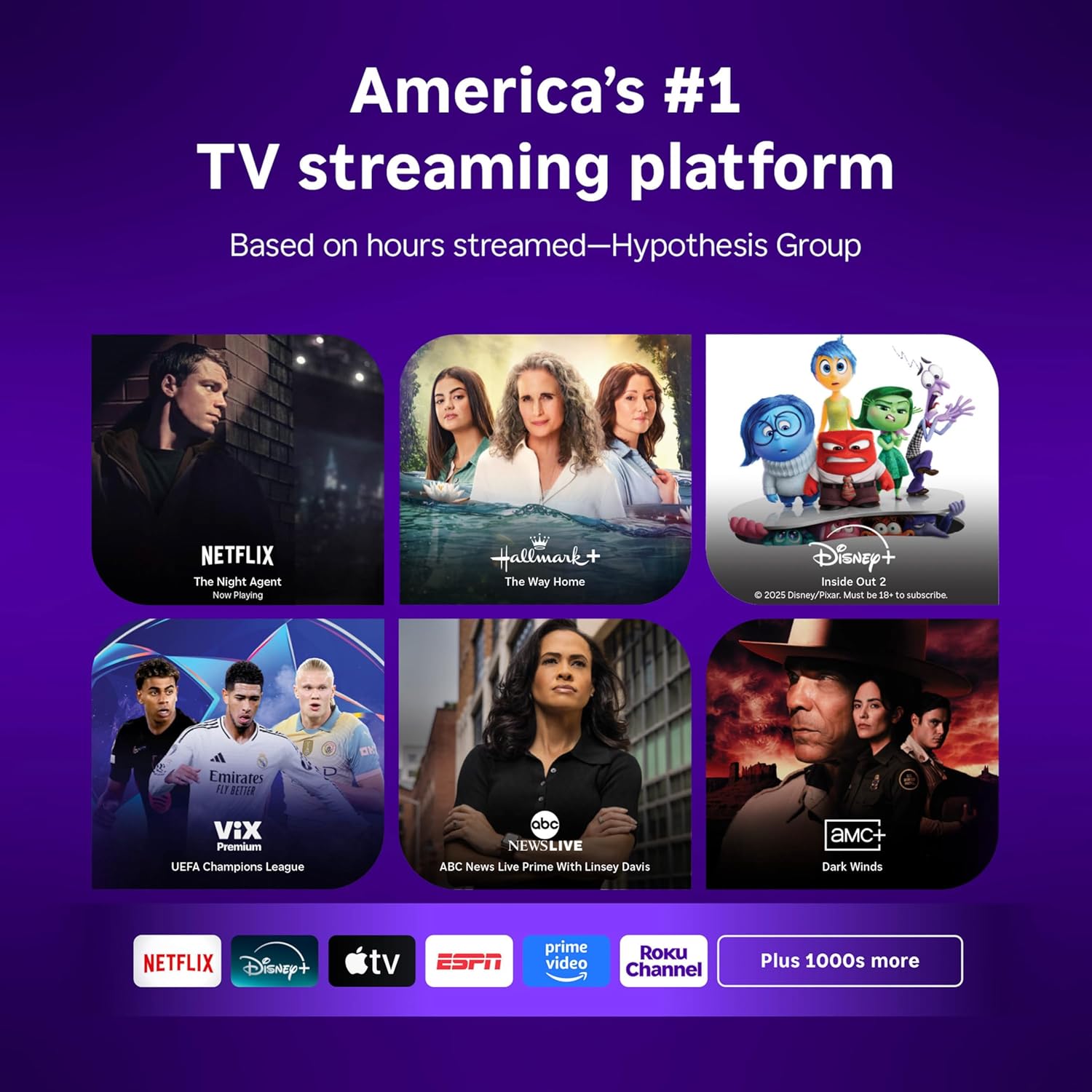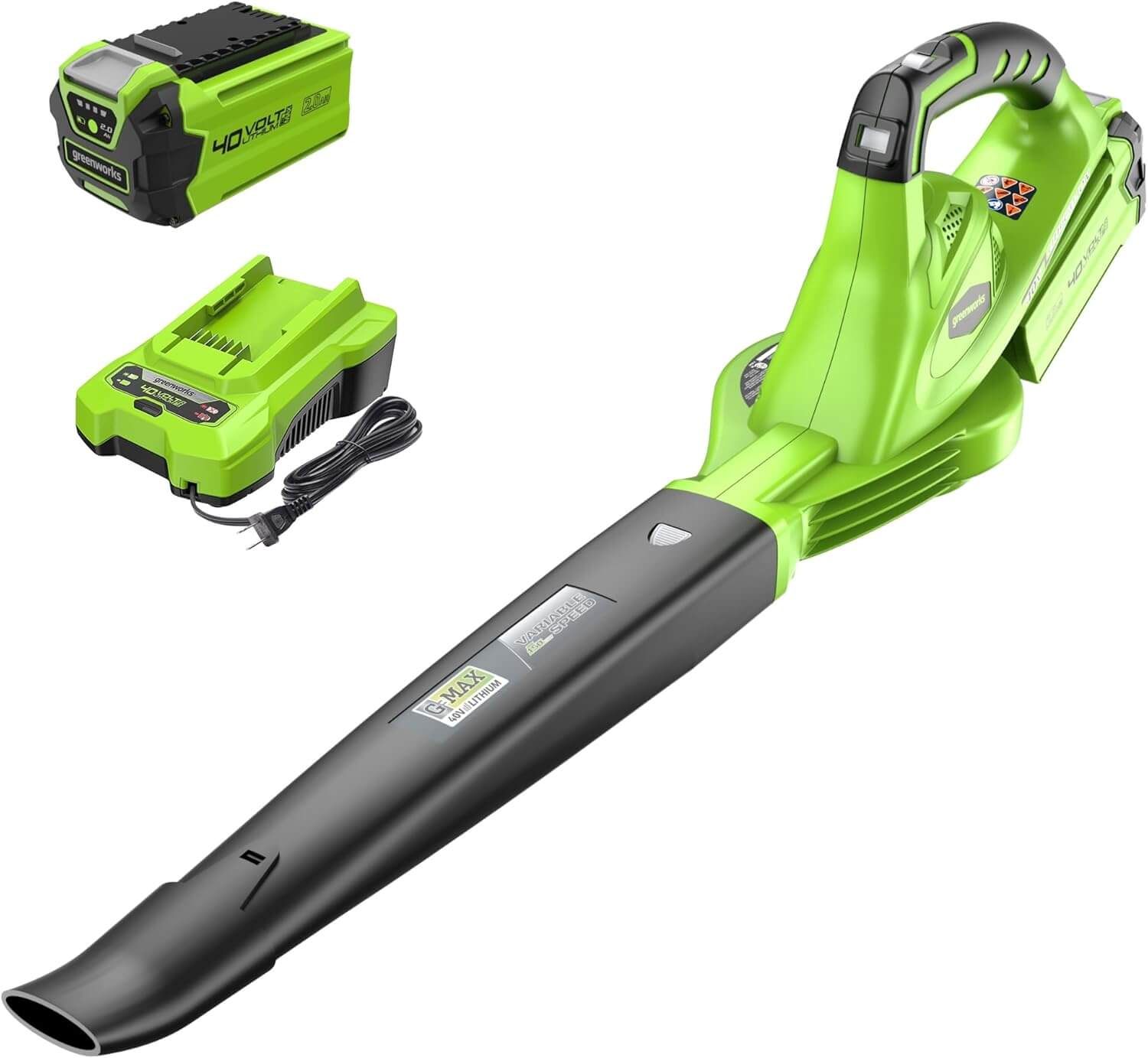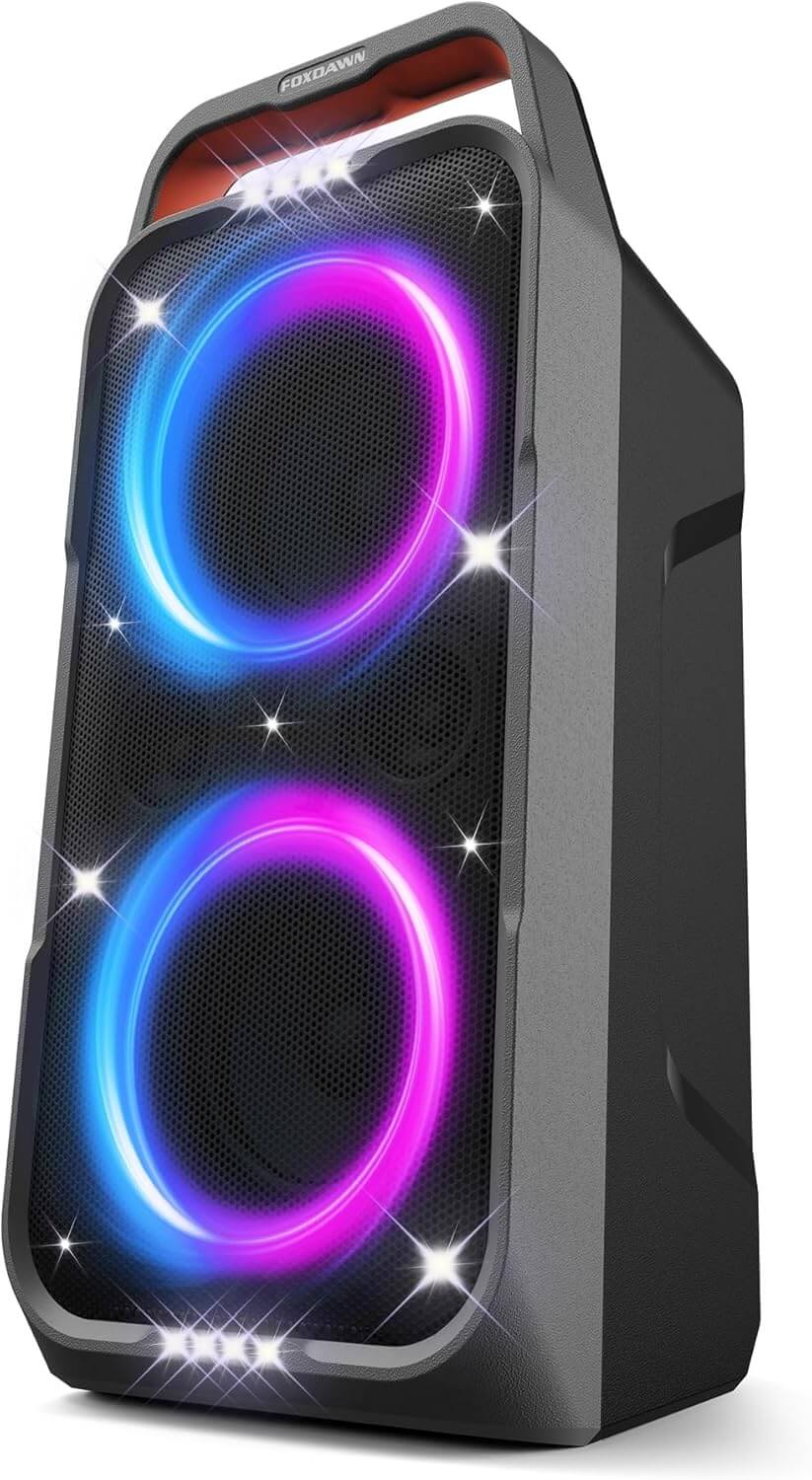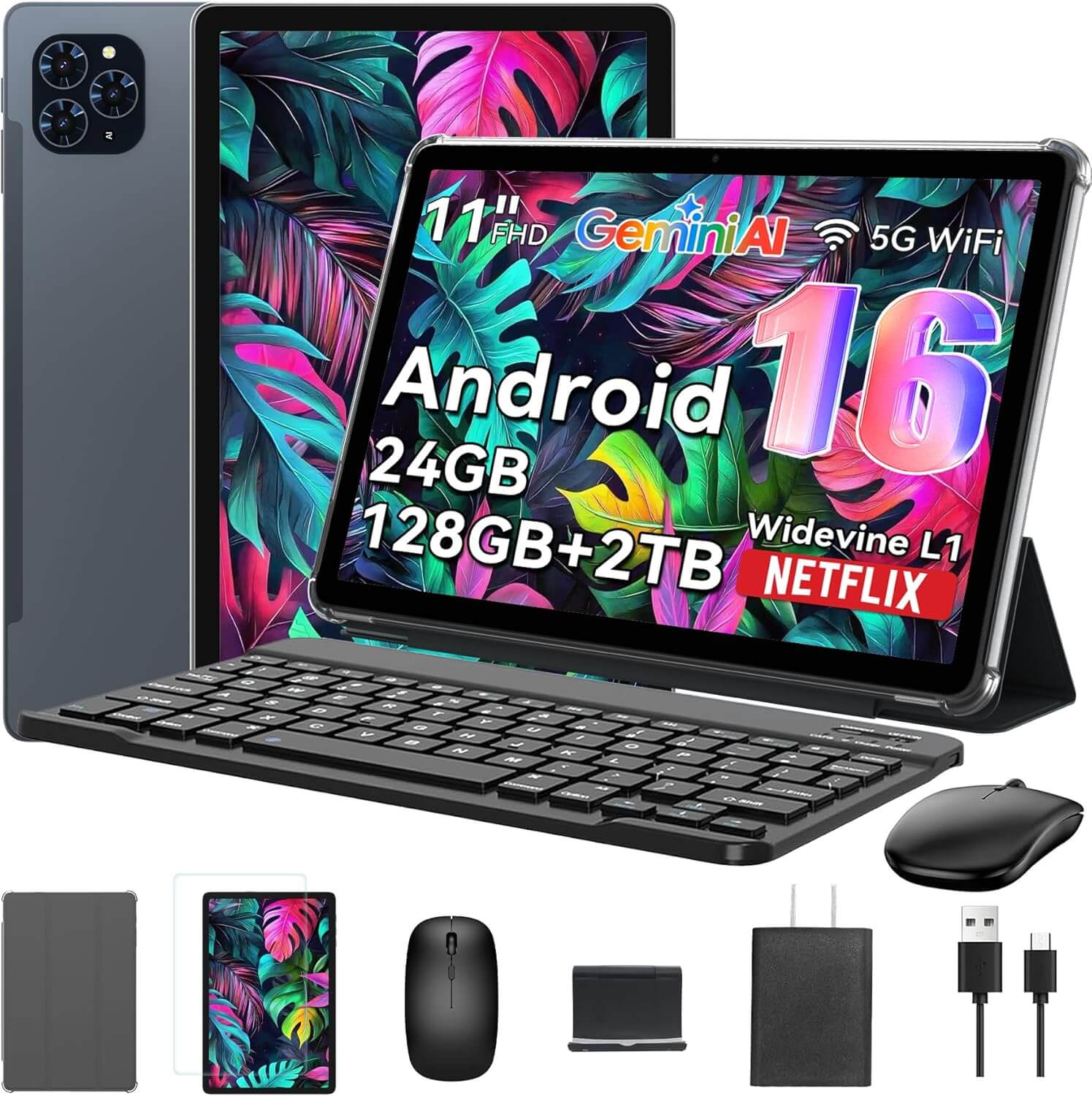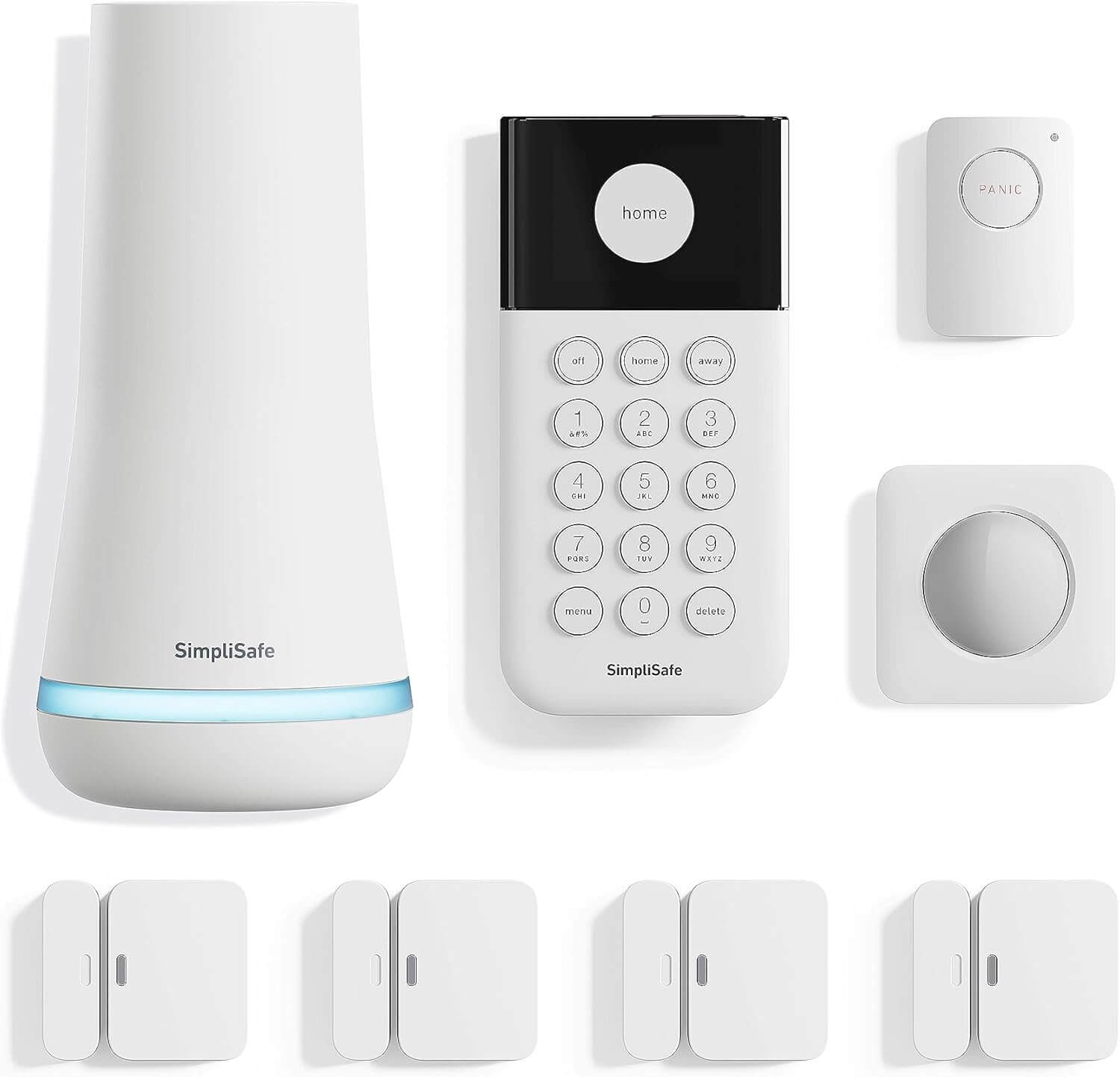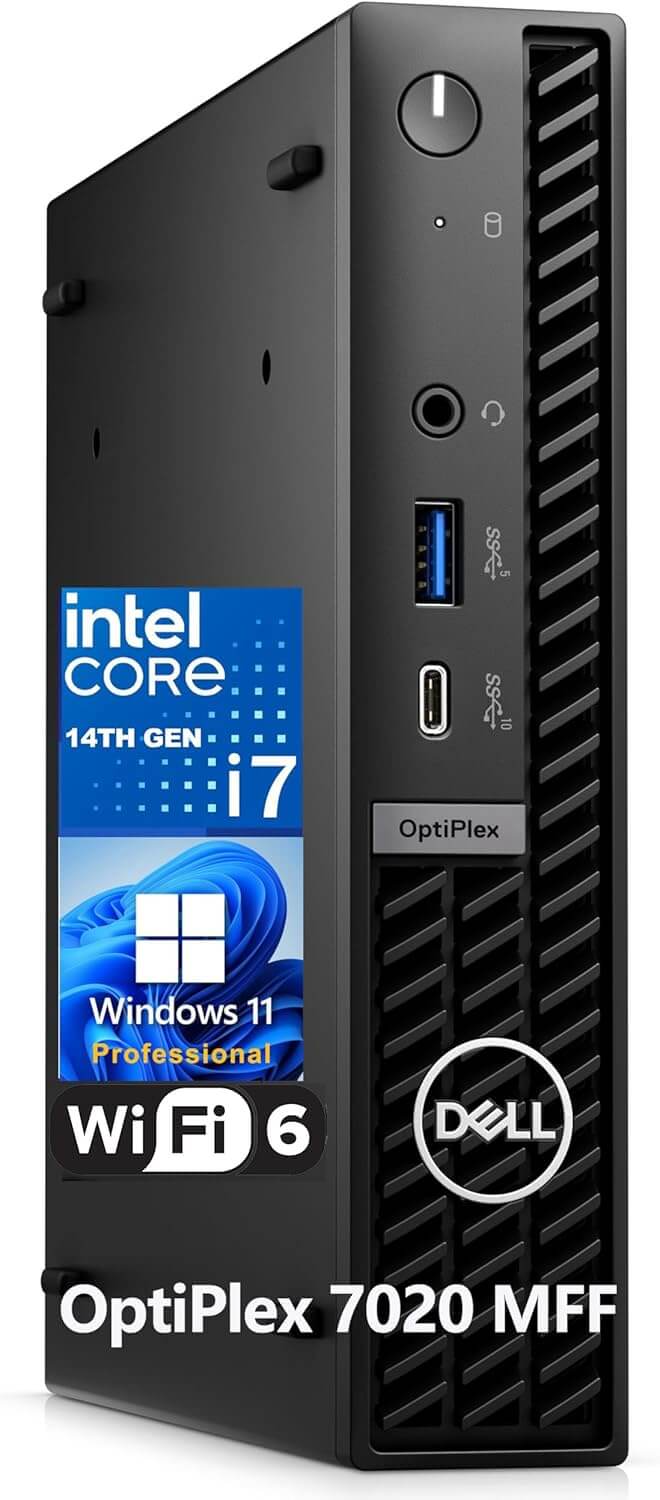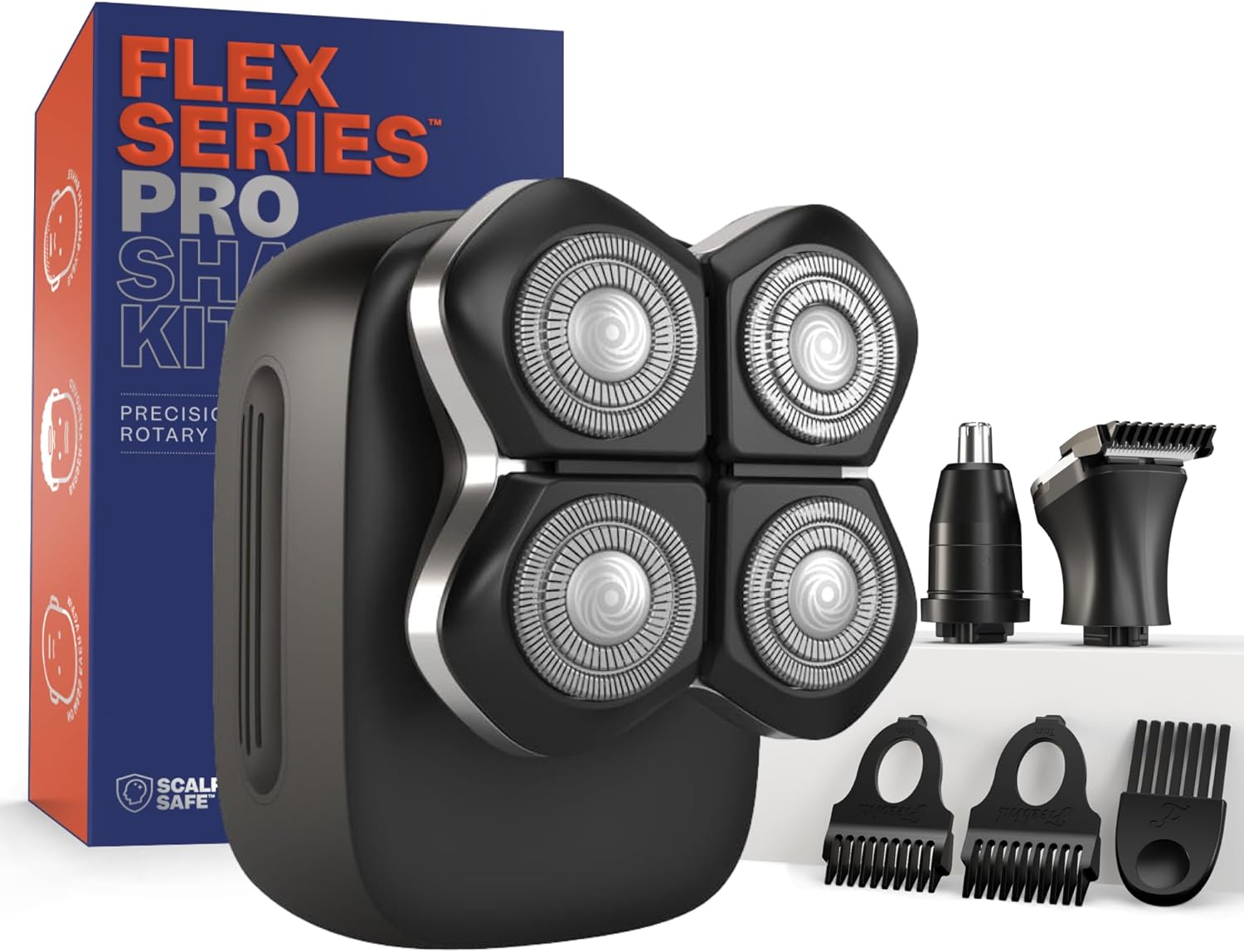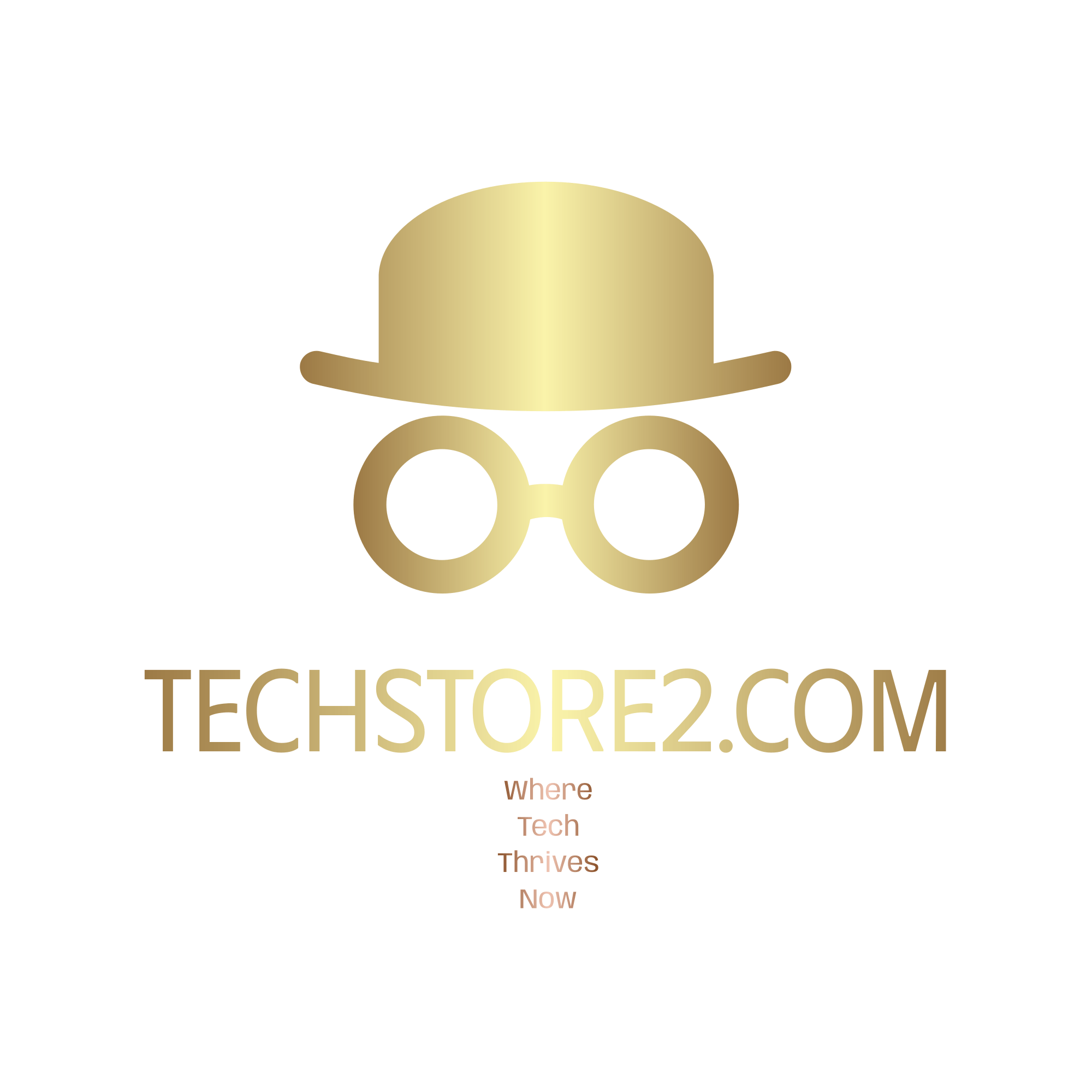Introduction to Tablets and Their Popularity
Tablets have significantly transformed the way we consume content, communicate, and perform everyday tasks. In recent years, the surge in tablet usage has caught the attention of tech enthusiasts and casual users alike, prompting a closer examination of the underlying factors contributing to their success. According to recent statistics, global tablet shipments reached over 164 million units in 2022, marking a notable increase compared to preceding years. This growth trajectory emphasizes the emerging dominance of tablets in the consumer electronics market.
A myriad of factors drives the popularity of tablets. One prominent advantage is their unparalleled mobility. Tablets are lightweight and portable, allowing users to access information, stream videos, or communicate while on the move. This versatility has appealed to a broad audience, from students and professionals to families seeking entertainment options. As remote work and online learning become more prevalent, the convenience of having a device that merges the features of both smartphones and laptops is increasingly appreciated.
Another reason for the rising popularity of tablets is their ease of use. The intuitive touchscreen interface makes navigation seamless, catering to individuals of varying technical skill levels. Furthermore, the availability of diverse apps enhances their functionality, enabling users to engage in creative projects, manage tasks, or participate in social networking with minimal effort. The versatility of tablets in serving multiple purposes—from reading e-books and watching movies to creating presentations—positions them as essential tools in daily life.
As digital consumption continues to evolve, tablets are likely to remain prominent in shaping how we engage with technology. This adaptability and user-friendliness signal that their appeal is only set to grow, solidifying their place in the ever-changing landscape of personal computing devices.
The iPad: A Benchmark in Tablet Technology
The Apple iPad has firmly established itself as a leading benchmark in tablet technology since its initial release in 2010. The concept of a tablet was significantly redefined with this groundbreaking device, providing a seamless blend of performance, portability, and user-friendly interface. Over the years, Apple has introduced various models, each tailored to meet different user needs while maintaining high standards of quality and functionality.
Currently, the iPad lineup includes several distinct models: the standard iPad, iPad mini, iPad Air, and iPad Pro. The standard iPad remains a favorite for everyday tasks, featuring a 10.2-inch display, powerful A13 Bionic chip, and compatibility with the Apple Pencil and Smart Keyboard. This model is ideal for students and casual users who seek a reliable and versatile device without breaking the bank.
In contrast, the iPad mini appeals to those who prioritize portability. With its compact 7.9-inch display and the advanced A15 Bionic chip, it is perfect for reading, gaming, and on-the-go productivity. Despite its smaller size, the iPad mini does not compromise on performance or features, continuing the iPad tradition of excellence.
The iPad Air is designed for users who want a balance of power and lightweight design. It boasts a larger 10.9-inch Liquid Retina display and can be equipped with the M1 chip, offering desktop-level performance. This model is particularly attractive to creative professionals requiring robust capabilities for design work, video editing, and more.
Lastly, the iPad Pro represents the pinnacle of Apple’s tablet technology. Available in both 11-inch and 12.9-inch variants, it features an edge-to-edge Liquid Retina display, ProMotion technology, and the powerful M2 chip. These specifications make the iPad Pro ideal for demanding applications, rendering it a top choice for professionals and creatives alike. The diverse range of iPads demonstrates Apple’s commitment to innovation and user satisfaction, ensuring the iPad remains a dominant player in the tablet market.
Other Tablet Brands: A Competitive Landscape
The tablet market has seen a significant evolution beyond Apple’s iPad, with several brands emerging as formidable competitors. Notably, Samsung has solidified its presence with the Galaxy Tab series, which is known for its high-quality displays and versatile functionalities. These tablets often run on the Android operating system, allowing users access to a vast array of applications. Galaxy Tabs come equipped with features such as S Pen support, which enhances productivity through note-taking and drawing for creative users.
Microsoft has positioned itself uniquely with the Surface line, which caters primarily to professionals seeking a hybrid device that combines the functionalities of a tablet and a laptop. The Microsoft Surface Pro, for instance, runs on the Windows operating system, providing a familiar environment for those accustomed to PC applications. Its detachable keyboard offers a seamless transition between tablet and laptop use, making it an appealing choice for business and educational purposes.
Amazon enters the fray with its Fire tablets, which are designed primarily for media consumption at an affordable price point. While lacking some of the advanced features found in premium models, such as high-resolution displays and robust computing power, Fire tablets excel in offering a user-friendly interface for streaming and reading. The integration of Amazon services, including Prime Video and Kindle, further distinguishes it within the budget segment.
Lenovo rounds out this competitive landscape with its versatile Tab series and Yoga tablets that focus on innovation and multimedia capabilities. Known for their affordability and solid battery life, Lenovo tablets are particularly attractive for casual users and families. They compete directly with both Android and Windows devices, showcasing a diversified range of options to suit varying user needs.
As consumers assess their choices, these brands present distinct alternatives to the iPad, each with unique strengths and pricing strategies that reflect diverse market demands.
Key Advantages of Owning a Tablet
In recent years, tablets have emerged as a popular choice for consumers seeking versatile and portable devices. One of the primary advantages of owning a tablet is its portability; these devices are lightweight and easy to carry, making them ideal for both travel and daily commutes. Whether you are heading to a meeting, lounging at home, or traveling, a tablet offers the convenience of having a powerful computing device at your fingertips without the bulk of a laptop.
Functionality is another significant advantage of tablets. They serve efficiently in various contexts, ranging from media consumption to productivity tasks. Users can stream movies, read e-books, or browse the internet seamlessly, thanks to vibrant displays and intuitive interfaces. Additionally, many tablets now support capabilities such as multitasking, enabling users to switch between applications effortlessly, which is particularly beneficial for those who wish to balance work and entertainment.
Another point in favor of tablets is their impressive battery life. Unlike traditional laptops, which often require frequent recharging, many tablets can last an entire day on a single charge, making them a great option for users on the go. This efficiency allows individuals to stay productive without the constant worry of needing to find an outlet.
The vast availability of applications is also a compelling reason to consider owning a tablet. App ecosystems, particularly on platforms like iOS and Android, offer a wide range of applications tailored for various needs, from educational programs to productivity tools, and social media platforms. This broad selection ensures that whether one is looking to enhance their productivity or simply enjoy a good game, there is an app for that.
Lastly, the ease of use that tablets offer cannot be overlooked. With touch-screen interfaces and intuitive designs, tablets provide an accessible way for users of all ages to engage and interact with technology. Tablets can effectively complement laptops and smartphones, making them a versatile addition to anyone’s tech ecosystem.
The Drawbacks of Tablet Ownership
While tablets have gained immense popularity and convenience for users, there are several drawbacks associated with tablet ownership that potential buyers should consider. One of the primary concerns is the limited processing power compared to traditional laptops. Most tablets are equipped with processors that suffice for everyday tasks such as web browsing and streaming media, but they often struggle with demanding applications like graphic design software or high-end video editing, which can limit their utility for professional users.
Furthermore, the absence of certain software on tablets can be a significant drawback. Many desktop applications are not available on tablet platforms, which can hinder productivity for users accustomed to more robust software environments. For instance, while you may find basic versions of programs on tablets, they often lack advanced features that professionals in fields such as accounting, engineering, or programming depend on. This disparity can leave users frustrated, particularly if they are transitioning from more powerful devices.
Data storage limitations also pose a challenge for tablet owners. Although various tablets come with cloud storage options and expandable memory capabilities, many users find that built-in storage capacity is often insufficient for their needs. This can lead to the need for additional storage solutions, which may detract from the simplicity and portability that tablets are celebrated for. Users must also consider the potential expense of purchasing cloud storage plans if they require extra space for their files.
Lastly, ergonomic concerns can arise when using tablets for extended periods. Unlike laptops, which often come with adjustable screens and built-in keyboards, tablet usage may encourage awkward postures leading to discomfort. Users should invest in accessories like keyboard cases or stands to mitigate strain, but this adds to the overall cost of tablet ownership. Thus, a careful evaluation of these factors is essential for individuals contemplating the transition to a tablet-centric lifestyle.
Usage Scenarios: Who Benefits from Tablets?
Tablets have become an integral part of various user groups, with their versatility catering to a wide array of needs. One of the prominent beneficiaries is students, who leverage tablets for educational purposes. Tablets serve as a convenient device for accessing a plethora of learning materials, including e-books, educational apps, and online courses. The portability of these devices allows students to study anywhere, facilitating a more flexible learning environment. Furthermore, collaborative apps enable group projects and remote learning, making tablets an essential tool in contemporary education.
Professionals also reap substantial benefits from using tablets. With robust productivity apps available, tablets serve as an effective platform for note-taking, document editing, and presentations. For those who travel frequently, the lightweight and compact nature of tablets makes them a preferable option over traditional laptops. Additionally, many tablets support stylus input, allowing for more dynamic and efficient workflows during meetings and brainstorming sessions. The seamless integration of communication applications promotes quick responses and efficient collaboration among team members.
Artists and creative individuals are another significant user group utilizing tablets to their advantage. Tablets equipped with advanced graphics capabilities and responsive touch screens provide a canvas for digital artistry and design. Graphic designers, illustrators, and photographers can manipulate images and create unique works directly on their tablets, benefiting from the convenience of stylus-driven interaction. Applications tailored for creative professionals offer tools that mimic real-life drawing, painting, and editing processes, enhancing creativity and artistic expression.
Lastly, casual users appreciate the entertainment value that tablets offer. Whether it is streaming movies, reading novels, or playing games, tablets provide a compact solution to enjoy various media. The ease of use and accessibility of content-rich applications ensure that casual users can effortlessly engage with their favorite hobbies and interests. This diverse array of functionalities illustrates how tablets cater to a wide range of needs across different demographics, solidifying their status as essential devices in today’s technology-driven world.
Future Trends in Tablet Technology
The tablet market is evolving rapidly, with several emerging technologies set to reshape the user experience. One of the most talked-about advancements is the introduction of foldable screens. Unlike traditional tablets, which operate with rigid formats, devices featuring foldable displays offer versatility and portability. Manufacturers are increasingly investing in this technology to provide users with larger screen real estate without compromising on mobility. This innovation not only enhances multitasking capabilities but also creates opportunities for creative use, such as dual-screen applications.
Enhanced connectivity options are another crucial trend influencing the future of tablets. As 5G networks become more prevalent, tablets equipped with 5G connectivity will allow for significantly faster data transfer rates and reduced latency. This expanded connectivity will pave the way for cloud-based applications and streaming services, making it easier for users to access resources on the go. As a result, consumers can expect more seamless browsing, collaboration, and entertainment experiences, all driven by robust internet availability.
The integration of Artificial Intelligence (AI) into tablets is also a noteworthy trend. Smart features such as voice commands, personalized suggestions, and enhanced security protocols are becoming increasingly standard. Tablets that learn from their users can provide customized experiences tailored to individual habits and preferences. As these technologies continue to develop, we can anticipate smarter, more intuitive interfaces that anticipate user needs, ultimately making tablets even more user-friendly and effective tools for productivity and leisure alike.
In summary, the tablet industry is on the brink of significant transformation, with foldable screens, advanced connectivity options, and AI integration at the forefront. As these trends emerge, consumers will benefit from more versatile, connected, and intelligent devices, solidifying tablets’ position within the technology landscape.
Enhancing Your Tablet Experience with Accessories
As the popularity of tablets, including iPads and competing brands, continues to grow, so does the range of accessories designed to complement and enhance these devices. Accessorizing a tablet not only elevates its functionality but also broadens its potential uses, making it a versatile tool for both work and leisure. Among the most sought-after tablet accessories is the keyboard, which transforms the tablet into a semi-laptop experience. Bluetooth keyboards, which are widely available, offer users a tactile typing experience that is often missing from the tablet’s touchscreen interface.
Styluses also play a significant role in enhancing user interaction with tablets. While many tablets come equipped with advanced touchscreens, a stylus can provide precision for tasks such as digital drawing, note-taking, and graphic design. This particularly proves essential for professionals in creative fields who require high accuracy. With the advancement of technology, many styluses are designed to emulate the feel of traditional writing instruments, allowing for a more natural experience while using applications such as drawing or editing software.
Another essential accessory is a protective case. Given the portability of tablets, they are often prone to accidental drops and spills. A quality protective case not only safeguards the device but can also provide additional features such as built-in stands, which enhance the viewing experience by allowing users to position their tablets comfortably for reading or media consumption. Furthermore, various cases come with added functionalities, such as card slots and even extra battery packs, providing convenience for users on the go.
Overall, the right accessories transform a standard tablet into a more functional and tailored device. Users can adapt their tablets to suit varied tasks, from professional work to casual entertainment, thus maximizing their investment in the technology.
Conclusion: Are Tablets the Future of Computing?
As we have explored throughout this discussion, the rise of tablets, particularly models like the iPad and other competing brands, signifies a notable shift in how we interact with technology. The versatility and portability of these devices make them increasingly favorable for a range of applications, from casual browsing and media consumption to professional tasks such as work and education. This adaptability also highlights a fundamental change in user preferences, as consumers embrace lightweight devices that provide essential functionalities.
Additionally, the development of robust applications designed specifically for tablet use further enhances their computing capabilities. Users can now perform intricate tasks, whether it be graphic design through specialized software or comprehensive project management using cloud services. This shift indicates that tablets are not merely companion devices but can stand toe-to-toe with traditional laptops and desktops, potentially altering the standard for personal computing.
However, while the growth trajectory of tablets is impressive, it raises questions about the future landscape of computing devices. Will tablets ascend to the forefront, becoming the singular device for most users, or will laptops and desktops continue to hold their ground due to their capabilities in specific, demanding tasks? Furthermore, the future may see an increasing integration of tablets into hybrid systems where traditional and touch-based interfaces coalesce, allowing for an enhanced user experience.
We invite readers to share their thoughts and experiences regarding tablets. Are they your primary device, or do you prefer traditional computers for certain tasks? Your insights may provide valuable additional perspectives on this evolution in computing technology.
